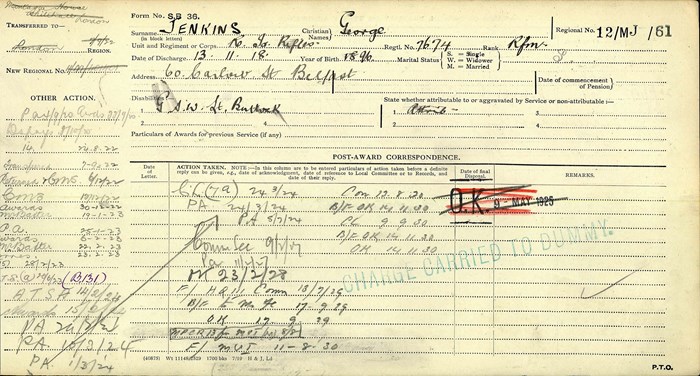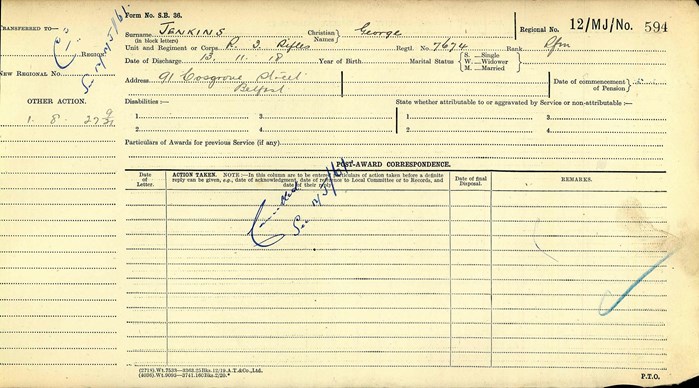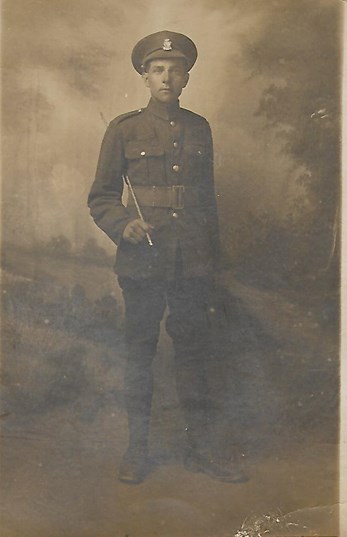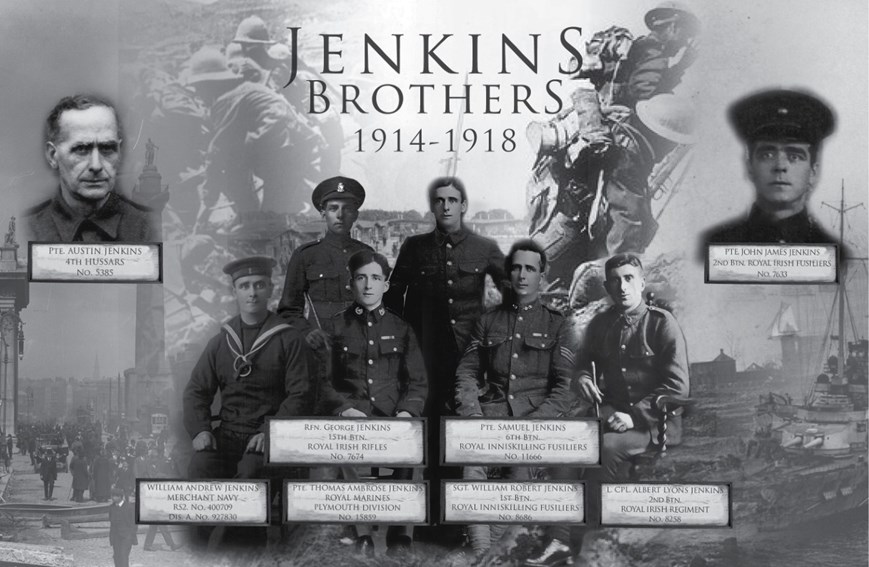Finding Great Uncle George
- Home
- World War I Articles
- Finding Great Uncle George



Below is a picture I put together of my Grandfather Samuel (who is in the middle) with his 6 brothers who also served in WW1.
Austin who fought in France with the 4th Hussars was also in Dublin during the 1916 rising. They took the first casualties outside the GPO. (Picture of the GPO and Nelson's column in the background.)
William Andrew who served with the Merchant Navy around the coast of Britain and also served in North Russia in 1919 supplying the White Army during the Russian Revolution.
Thomas who served with the Royal Marines and was in the band.
Samuel who served in Gallipoli and later in France after he had overcome his Malaria.
William Robert who served in Gallipoli and France. He was injured in July 1917 in Belgium by the same shell that killed Irish Poet Francis Ledwidge. He was injured and captured during the German Spring offensive of 1918.
Albert was a Trench Raider 1915-1916. He was part of a raiding party that went out on Christmas Day 1915. The Brigadier congratulated him on the successful raid. Albert was killed during a trench raid at the Sunken Road, the Somme on the 11th June 1916.
John James was taken prisoner in September 1914 and spent the next 4 years in Limburg POW camp. The Irish prisoners were mistreated by the Germans all the time they were there.






